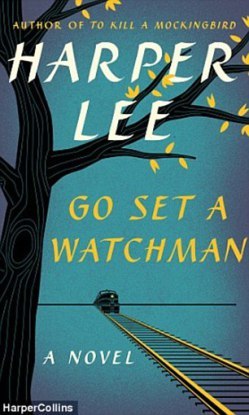“Go Set a Watchman” shows how little has changed in 50 years
 Go Set a Watchman was an insightful but disappointing read – disappointing because I, like many Mockingbird fans, saw Atticus Finch as an iconic figure and a kind of hero. Watchman definitely tears that image to bits.
Go Set a Watchman was an insightful but disappointing read – disappointing because I, like many Mockingbird fans, saw Atticus Finch as an iconic figure and a kind of hero. Watchman definitely tears that image to bits.
But it’s a timely book, because “separate but equal” is a recurring theme in this country’s history: from race, class, and now with the legalization of gay marriage.
Watchman shows that prejudice and equality are complex and often go together: you can support equal rights legally and still believe one group of people is superior to another. There’s overt prejudice, and then there’s prejudice doused with pleasantness – the latter being the hardest to diagnose. Somehow, as prevalent as racism is, it’s not always “polite” to wear it so obviously on one’s sleeve (unless you belong to the Klan).
But this book makes me wonder if “polite” prejudice is perhaps the most harmful kind. That’s what we saw in Mockingbird, told from the child perspective of Scout Finch. In Watchman, the racism is obvious and unapologetic, and the now-grown Jean Louise Finch comes to the same realization that Mockingbird’s readers knew all along: she was duped by her childhood. She learns that good is not always good; that justice and equality do not always go hand in hand.
I confess that I have not witnessed a great deal of racism personally. My sheltered, privileged upbringing kept me sheltered from that. I didn’t have any black friends growing up; my high school barely had any non-white students. But I have gone to church with people who tout the line “Hate the sin, not the sinner” regarding LGBT people. The more I talk to my gay friends, and the more I learn about homosexuality as an intricate part of someone’s given sexuality, the more I realize how much “separate but equal” feelings permeated my previous church groups and bible studies. In many ways, the anti-gay sentiments doused in “love” are a lot like veiled racism: laced within social niceties are condescending, “I know better than you” attitudes that don’t just offend, but belittle the recipient, giving them the impression that they deserve kindness because there is something wrong with them; something they cannot see or fix on their own. Because they are sick, stupid, or in denial.
Such is the attitude towards black people within the Finch family: they are an infant group struggling to grow up fast so they can sit at the White Big Kid table. And like infants learning to walk, they clearly need a hand from the white people, who know better. But this is talked about with such good intentions, so the Finches – most heartbreakingly, Atticus Finch – aren’t the bad guys. In fact, Atticus is one of the “nice racists” because even though he sees blacks as inferior, he still wants to help them, and gets frustrated when that help is refused, because like toddlers, they don’t want to learn.
At least the people wearing the white hoods, waving the Confederate flags, and holding up signs make it clear where they stand. I actually prefer that kind of prejudice – there’s no bullshit, just raw honesty.
As far as literature goes, Watchman suffers from a lack of continuity with its plot: mainly, I couldn’t figure out what the plot was supposed to be, exactly. It’s a book driven by characters and dialogue more than anything else, and the shifts between first and third person with Jean Louise were distracting. If nothing else, Watchman shows how very little has changed within the last fifty years. People like Atticus Finch were the “good guys” of his time, and in 2015, it seems they still are.
Filed under: Other stuff, Religion, Writing & Publishing Tagged: banned books, censorship, Christian culture, Christianity, Controversy, evangelicals, gay marriage, Go Set a Watchman, Harper Lee, LGBT, Racism











